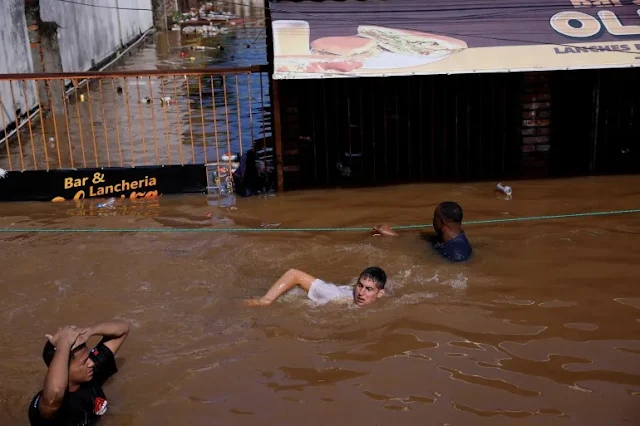Photo Credit : Reuters
Severe flooding in Brazil's southern Rio Grande do Sul state has left a devastating toll, with at least 75 fatalities and over 100 individuals reported missing over the past week. Local authorities disclosed that more than 88,000 people have been displaced by the floods, with approximately 16,000 seeking refuge in makeshift accommodations like schools and gymnasiums.
The aftermath of the floods has brought about widespread destruction, including landslides, impassable roads, and collapsed bridges throughout the state. Utilities have been severely impacted, with reports of electricity and communication outages, while over 800,000 individuals are facing water shortages, as reported by the civil defence citing figures from water company Corsan.
State Governor Eduardo Leite described the devastation as unprecedented, indicating that significant reconstruction efforts akin to a "Marshall Plan" will be necessary.
President Luiz Inacio Lula da Silva, accompanied by key ministers, including Defence Minister Jose Mucio, Finance Minister Fernando Haddad, and Environment Minister Marina Silva, made a second visit to Rio Grande do Sul. Following an aerial survey of the flood-affected areas, President Lula stressed the importance of proactive disaster management.
The Guaiba River surged to record levels, surpassing those seen during a historic 1941 flood, highlighting the severity of the situation. Pope Francis expressed solidarity with the affected population during Sunday mass at the Vatican, offering prayers for the deceased and those displaced from their homes.
The torrential rains, which began on Monday and persisted until Sunday, resulted in rainfall exceeding 300mm in some regions within a week, according to Brazil's National Institute of Meteorology (INMET). This catastrophic weather event marks the fourth environmental disaster in the state within a year.
The recurring extreme weather incidents are exacerbated by the El Nino climate phenomenon, historically associated with droughts in northern Brazil and heavy rainfall in the south. This year, the effects of El Nino have been particularly severe, contributing to a historic drought in the Amazon. Scientists attribute the increased frequency of extreme weather events to human-induced climate change.
Suely Araujo, a public policy coordinator at the Climate Observatory, emphasized the urgent need for Brazil to adapt to the impacts of climate change, foreseeing a future marked by escalating and more frequent tragedies.


